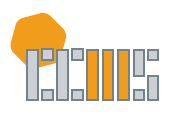Abstract / Synopsis
When our students enter the workforce, be it in academia or in business, industry, government, they will be forced to make decisions about various ethical dilemmas. Once in a while, the scandalous stories like that of Enron, the three German auto-makers’ diesel fuel pact, and the Equifax data breach make the headlines. However, employees at every workplace are faced with small to large-scale ethical situations almost daily. In our majors’ future careers, a manager can be using an inappropriate graphic to display data to make the numbers look better, or the data collection processes used in a large public policy project can be completely skewed to support one conclusion that the client desires vs. another more reasonable conclusion. How well are our students prepared for dealing with these dilemmas? Can they even recognize an ethical dilemma? Do we provide them with the tools to be more vigilant about these situations and to make the appropriate decisions when the difficult choices have to be made? In this paper, I would like to invite us all to think about possible ways we can incorporate ethical decision making frameworks and case studies into our classes, particularly if our university does not have an ethics requirement for all majors. Even if there is a general ethics requirement, it is especially important for our students to be exposed to scenarios that are more relevant to the use of mathematics in the workforce since a general ethics course will not necessarily prepare them well for identifying subtle abuses of data processing and mathematical modeling.
DOI
10.5642/jhummath.CXSI3022
Recommended Citation
Feryal Alayont, "A Case for Ethics in the Mathematics Major Curriculum," Journal of Humanistic Mathematics, Volume 12 Issue 2 (July 2022), pages 160-177. DOI: 10.5642/jhummath.CXSI3022. Available at: https://scholarship.claremont.edu/jhm/vol12/iss2/10
Terms of Use & License Information

This work is licensed under a Creative Commons Attribution-Noncommercial-Share Alike 4.0 License.
